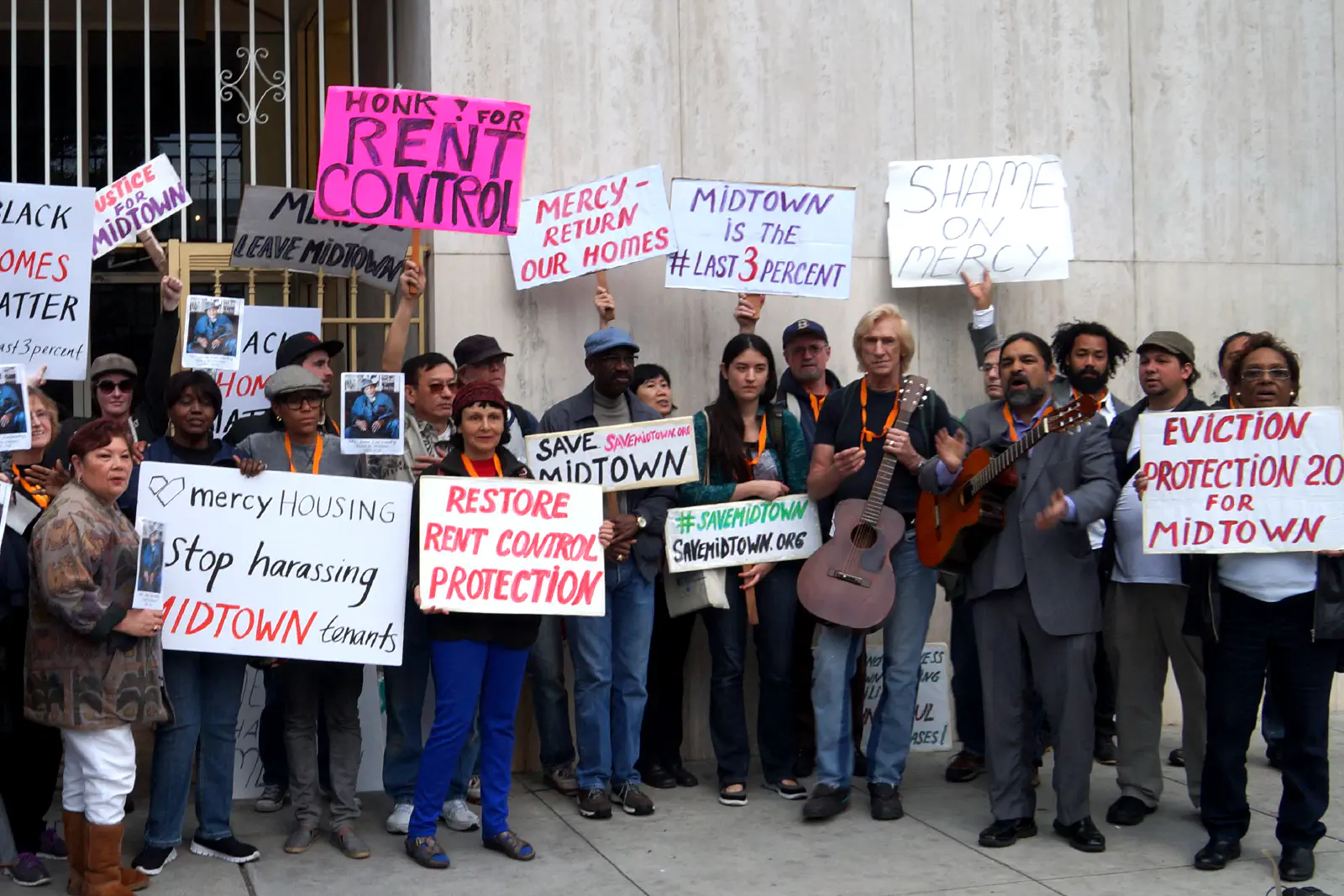
US Case Study: 'It was stolen from us'
“When Midtown was originally built it was supposed to have been rent to own… The developer ran out of money and the city assumed the loan on the property, but the city didn’t pay off the mortgage. The renter’s here paid the mortgage off. After the mortgage was paid off, the city said that the land was theirs and that the buildings were theirs.” (Donald Griggs, Resident, Midtown Park Apartments, 18 July 2020).
Donald goes on to say that, “if in fact, the residents are not owners of this property, it’s been stolen from us.” When Brandon Jourdan and I first started to make a film about Midtown Park Apartments it was hard to know how the various demands, experiences and pieces of the story fit together. The residents of Midtown wanted both rent control and ownership - but rent control is a landlord-tenant structure that governs all rental units built before 13 June 1979 in San Francisco and ownership would presumably involve no rent and therefore no rent control. The residents also had multiple battles they were fighting at once. The trigger for the rent strike was the introduction of a new non-profit Christian management company, Mercy Housing, that had introduced new leases and new rents for all of the residents.
Mercy Housing was applying the 30% of income rule that is commonly used in public housing in the United States. For some tenants, this meant a very large rent increase - in some cases as high as 300%. But the residents were also pursuing a another goal, which was to regain the ownership they were promised when they moved in, and promised again in 2007 when the San Francisco Board of Supervisors approved a resolution to work towards ownership for the residents. But when I first started working with Midtown the claims of ownership were hard to prove. None of the residents had the original paperwork from 1964 and the details of what happened were unknown to most of the residents.
All that the residents knew, is that when they moved in they were told it was rent to own and that once the mortgage was paid off they would own their units. But when the mortgage was finally paid off in 2007, the ownership never materialized and it turned out to be based on oral history more than legal rights.
It was not until a reporter (and supporter) dug through the San Francisco History Center archives and found the original brochure for Midtown Park Apartments dating back to before 1964 that the original intent could be supported by evidence. The brochure reads in block letters across the top “OWN YOUR OWN” and inside the brochure entices potential buyers by explaining what cooperative ownership is and why they should buy a unit at Midtown. Once I began digging into the archives, I also found the original “description” of Midtown Park Apartments provided by the developer to the Mayor with the request that the Mayor speak at the dedication ceremony.
In the developer’s 1964 description it is clear that the units are being sold, that residents are paying “mortgages”, and even that the mortgage interest is deductible from their taxes. I later discovered an elaborate description of Midtown Park at the Senate Committee hearing on Banking, Housing and Urban Affairs in October 1973, further confirming this original intention (and how it went wrong). But it was only after years of archival research that it became clear why the residents today so firmly believed they would one day regain ownership – the City and County of San Francisco Board of Supervisors archival records show decades of repeated promises of ownership.
Now that it can be clearly demonstrated that the original plan was for ownership and that this ownership was an ongoing series of broken promises made by the City to the residents, these documents can be used to mobilize in support of the current residents’ fight for ownership – either through the City’s reparations plan (in which Midtown is mentioned) or through an independent process in which the residents get to decide what ownership would mean for them. In 2023, such a process has now finally begun, but whether it will become yet another broken promise remains to be seen.


